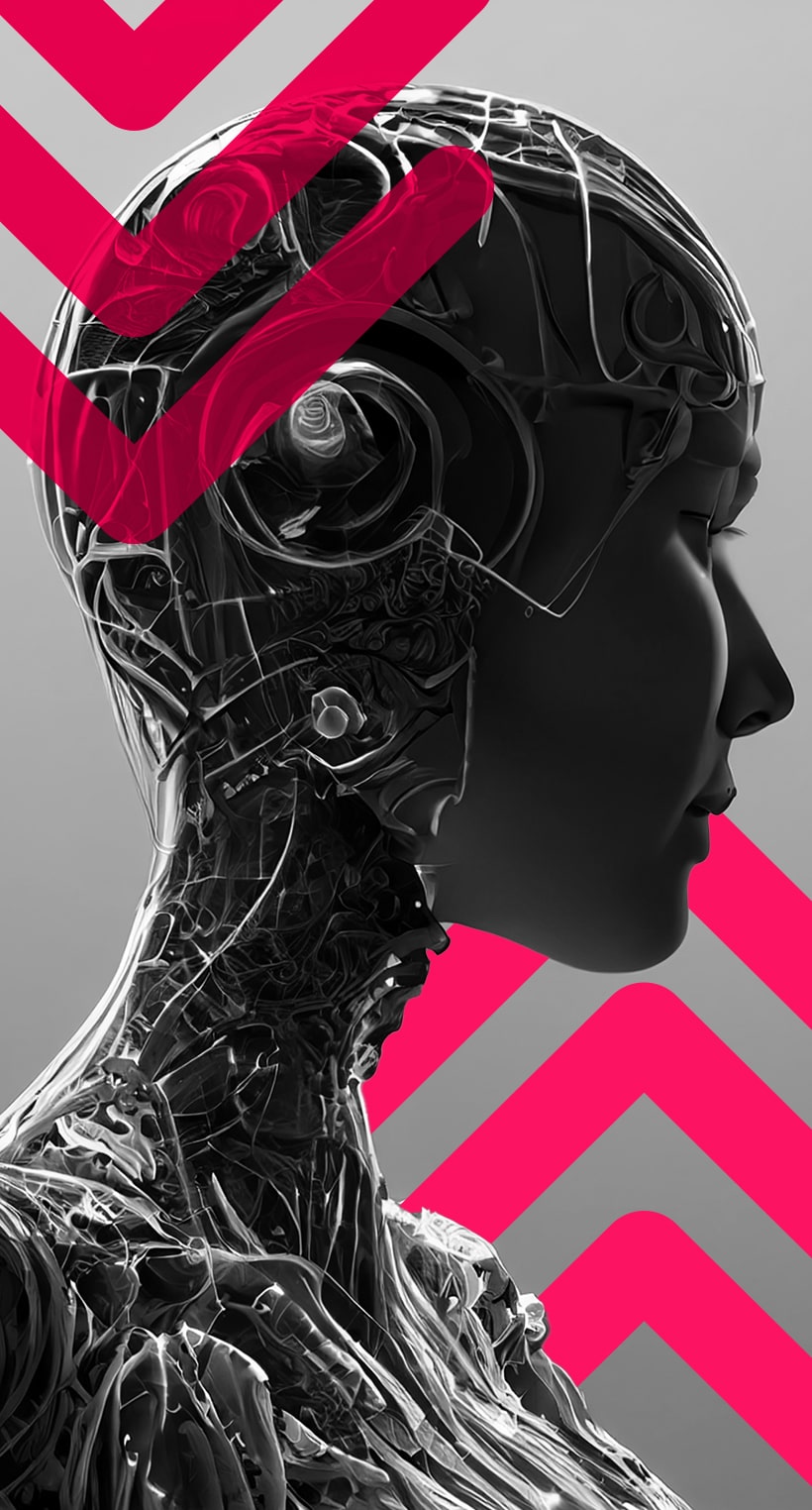In recent years, the mental health field has witnessed a remarkable transformation with the advent of Artificial Intelligence (AI). This powerful technology has revolutionised how we approach mental health, providing new tools and resources to patients and healthcare professionals. In this article, we will delve into the world of AI in mental health support, exploring its benefits, applications, and future prospects.
Introduction to AI in Mental Health Support
Artificial intelligence, or AI, refers to the development of computer systems capable of performing tasks that would typically require human intelligence. When applied to mental health support, AI technologies offer a range of innovative solutions to address various challenges in the field. These solutions include chatbots, virtual therapists, and predictive analytics, to name a few.
Understanding Artificial Intelligence in the Context of Mental Health
To truly appreciate the impact of AI on mental health support, it’s essential to understand how this technology works. AI systems are designed to analyse vast amounts of data, identify patterns, and make predictions based on that data. In the context of mental health, AI algorithms can analyse patient information, such as symptoms, medical history, and treatment outcomes, to provide personalised and evidence-based recommendations. By leveraging this technology, healthcare professionals can gain valuable insights into patients’ conditions and make more informed decisions about their treatment plans.
The Benefits of AI in Mental Health Support
The integration of AI into mental health support offers numerous benefits for both patients and healthcare providers. Firstly, AI-powered tools can improve access to mental health resources by providing round-the-clock support. This is particularly significant in areas where mental health services are scarce or inaccessible. Furthermore, AI technologies can reduce the stigma associated with seeking help by providing a confidential and non-judgmental platform for individuals to express their concerns. By eliminating barriers to entry, AI in mental health support encourages early intervention and reduces the risk of long-term mental health complications.
In addition to accessibility, AI also enhances the efficiency and accuracy of mental health assessments. Traditional methods of diagnosing mental health conditions often rely on subjective assessments and self-reporting. However, AI algorithms can analyse speech patterns, facial expressions, and other non-verbal cues to detect signs of distress or mental health disorders. By augmenting the diagnostic process, AI enables early detection and intervention, leading to more effective treatment outcomes.
Moreover, AI tools can continuously monitor and support individuals with mental health conditions. For instance, wearable devices equipped with AI algorithms can track physiological indicators, such as heart rate and sleep patterns, to identify changes that may indicate worsening mental health. This proactive approach helps clinicians and patients intervene early, preventing crises and relapses.
AI-Powered Tools and Technologies for Mental Health
The application of AI in mental health support has given rise to many tools and technologies that enhance patient care. One of the most widely recognised AI applications in this field is the development of chatbots. These virtual assistants, powered by natural language processing algorithms, can converse with users and offer support, guidance, and resources. Chatbots provide an accessible and non-intimidating platform for individuals to discuss their mental health concerns and receive immediate assistance.
Another notable AI-powered tool is virtual therapy. Virtual therapists leverage AI to simulate human-like interactions and provide therapy sessions remotely. This technology enables individuals to access therapy from the comfort of their homes, eliminating geographical barriers and reducing the cost of treatment. Virtual therapists can offer evidence-based interventions, such as cognitive-behavioral therapy, tailored to the individual’s needs. Additionally, AI algorithms can adapt therapy sessions based on the patient’s progress and feedback, ensuring a personalised and effective treatment experience.
Predictive analytics is yet another valuable AI application in mental health support. By analysing large datasets, AI algorithms can identify risk factors, predict treatment outcomes, and inform treatment planning. This data-driven approach enhances the precision and efficiency of mental health interventions, enabling healthcare professionals to optimise treatment strategies for individual patients. Predictive analytics also holds great potential for suicide prevention, as it can identify individuals at high risk and trigger timely interventions.
Case Studies on the Use of AI in Mental Health Support
Real-world case studies demonstrate the significant impact of AI in mental health support. One such example is the use of AI algorithms to detect suicidal ideation in social media posts. By analysing language patterns and sentiment, AI systems can identify individuals who may be at risk of self-harm or suicide. This allows healthcare professionals to reach out and support those individuals before it is too late.
Another case study involves the use of AI-powered chatbots in therapy sessions. Researchers have found that individuals are more likely to disclose sensitive information to a virtual assistant than to a human therapist. This increased disclosure rate can lead to more accurate assessments and personalised treatment plans, ultimately improving patient outcomes.
Ethical Considerations and Challenges in AI-Based Mental Health Support
While AI offers tremendous promise in mental health support, it also raises ethical considerations and challenges. Privacy and data security are major concerns, as AI systems rely on vast amounts of personal information to provide accurate recommendations. It is crucial to ensure that data is handled securely and in compliance with relevant regulations to protect individuals’ privacy.
Another challenge is the potential for bias in AI algorithms. If the data used to train these algorithms is not diverse and representative, the resulting recommendations may be biased or inaccurate. Careful attention must be given to developing and validating AI systems to ensure fairness and inclusivity.
Additionally, AI-based mental health support’s lack of human touch is a valid concern. While virtual assistants and chatbots can provide valuable support, they cannot fully replace human therapists’ empathy and understanding. Therefore, it is essential to strike a balance between AI-driven interventions and traditional human-centred care to provide the best possible mental health support.
Integrating AI with Traditional Mental Health Treatments
Integrating AI with traditional mental health treatments holds great potential for enhancing patient outcomes. Rather than replacing human therapists, AI can augment their capabilities and support their decision-making process. By analysing patient data and providing evidence-based recommendations, AI technologies can assist healthcare professionals in tailoring treatment plans to each individual’s needs. This collaborative approach ensures the best of both worlds – the expertise of human therapists combined with the analytical power of AI.
Future Prospects and Advancements in AI for Mental Health Support
The future of AI in mental health support looks promising, with ongoing advancements and research in the field. Researchers are exploring the use of AI to predict the onset of mental health conditions, such as depression and anxiety, based on early warning signs. This early detection can enable preventive interventions and reduce the burden of mental health disorders.
Furthermore, advancements in natural language processing and sentiment analysis are improving the accuracy and effectiveness of AI-powered chatbots and virtual therapists. These technologies are becoming more sophisticated in understanding and responding to human emotions, further enhancing the user experience and therapeutic benefits.
Conclusion
In conclusion, AI is revolutionising mental health support by providing innovative tools and resources. From chatbots and virtual therapists to predictive analytics, AI-powered technologies offer numerous benefits for individuals seeking mental health support. They enhance accessibility, accuracy, and efficiency in the delivery of care while also addressing ethical considerations and challenges. As we look to the future, the advancements in AI hold great promise for improving mental health support and transforming patients’ lives.
;)
;)
;)